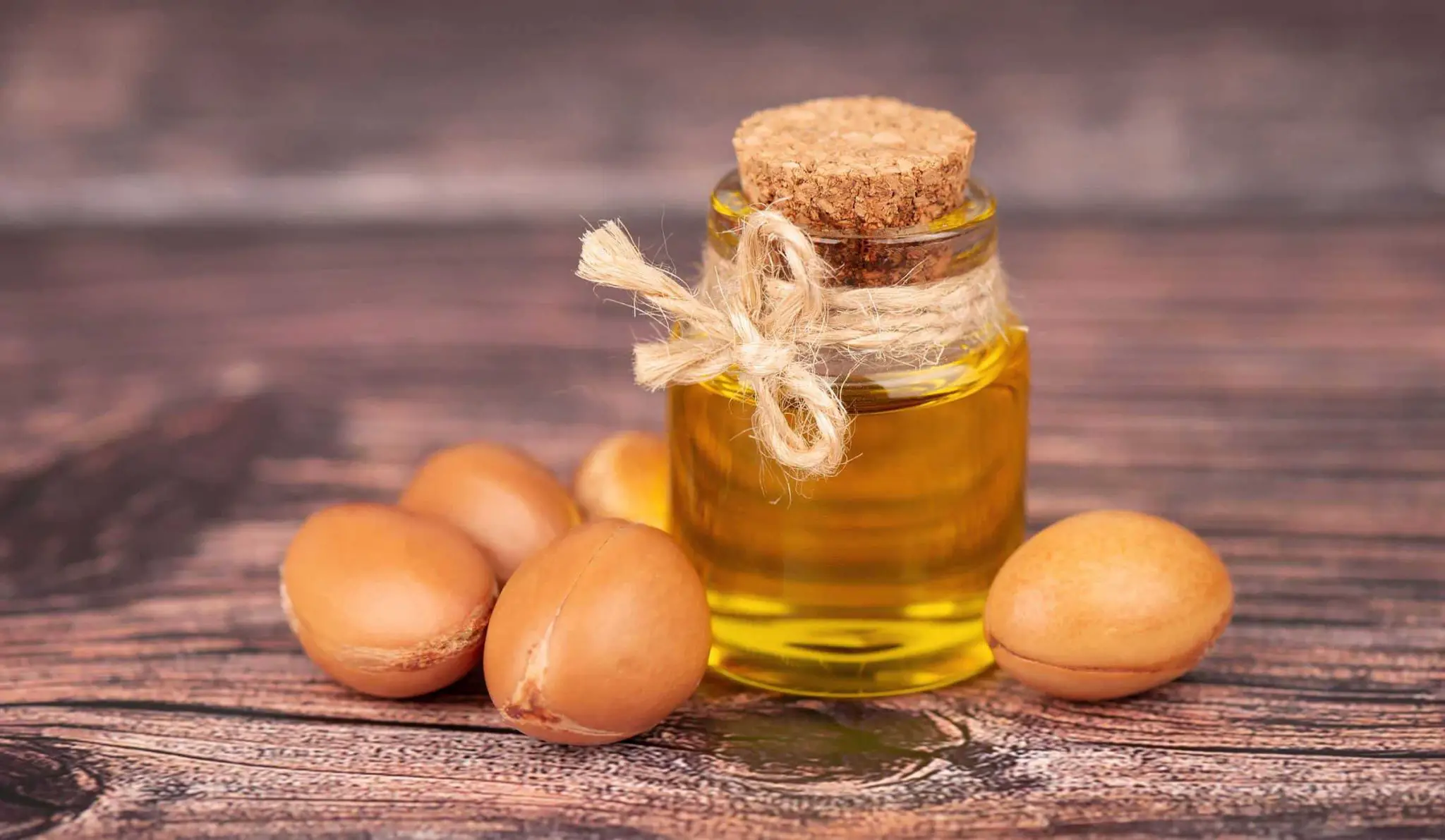Table of Contents
Argan Oil – All You Need To Know About
For decades, Moroccans have used argan oil in their cooking, not just because of its mild, nutty flavour, but also because of its vast range of possible health advantages.
The kernels of the argan tree’s fruit are used to make this naturally produced plant oil.
Argan oil, which is native to Morocco, is currently utilised in a range of culinary, dermatological, and medical uses all over the world.
Because each face oil has a unique composition, weight, and absorption rate, some are more suited for specific skin types and issues than others. Castor and grapeseed oils, for example, help to reduce excess oil on acne-prone skin, while coconut and avocado oils are extremely moisturising for dry skin.
Argan oil is ideal for all skin types since it is in the middle of the spectrum—not too heavy, nor too light. It’s high in omega fatty acids, vitamin E, and linoleic acids, all of which help to soothe dry spots, moisturise your skin, and even minimise acne.
Why does Argan Oil smell weird?
Argan oil has a strong and unpleasant odour that should be avoided at all costs. It’s most likely gone sour. The nutrient content, smell, and even colour of food can change over time due to long-term preservation. Argan oil has a lot of vitamin E in it. This is a potent antioxidant, although it has a limited shelf life. Direct sunlight can quicken the rate of deterioration and cause an unpleasant odour.
How to make the smell of Argan oil more appealing?
Mixing Argan oil with citrus fruit juice is one of the finest methods to make it smell nicer. If you combine it with citrus fruit juice, the citrus fruit juice will most likely overshadow the Argan oil’s scent.
Coconut oil is extremely beneficial to your health. It’s commonly utilised in the beauty sector, and it’s fortunate that it has a very strong “nice” odour. For those who appreciate the scent of coconuts, this is a must-try. As a result, if you like the scent of coconuts, melt some coconut oil and combine it with Argan oil to increase the aroma.
If you’re having trouble dealing with the strong fragrance of your Argan oil, consider reducing the smell with honey. You may easily combine honey with Argan oil, and the odour should be reduced.
Uses Of Argan Oil
1. Rich in antioxidants
Argan oil is high in antioxidants including polyphenols and vitamin E, which help protect against environmental harm. Because of its anti-aging and skin-softening qualities, this vitamin is popular in skincare. Both assist to scavenge free radicals and keep skin looking young.
2. Rich in fatty acids
Fatty acids make up nearly all of AO, accounting for around 95 percent of its weight. These provide skin with hydration and nutrients.
3. Anti-inflammatory
Fatty acids like oleic and linoleic acids also have the added benefit of being anti-inflammatory. Not only does this make it a choice for soothing inflamed skin, but it has also been suggested for acne treatment owing to its anti-inflammatory characteristics, as it is non-comedogenic and does not leave the face feeling oily.
4. Moisturising
Argan oil is suitable for all skin types; those with dry skin will benefit from its moisturising effects, while those with oily skin will find it bearable because it is light and does not leave the skin feeling greasy. It’s a frequent misunderstanding that only dry skin needs hydration. Moisture is necessary for everyone’s skin.
5. Helps prevent transepidermal water loss
Argan oil heals and seals the skin’s outer layer, which not only improves look but also protects the skin from future dryness and damage. This is accomplished by preventing transepidermal water loss (moisture escaping from the skin and evaporating into the air) caused by disturbances to the skin’s outermost barrier.
Here is the video on Argan Oil
Side Effects Of Using Argan Oil
Argan oil, for the most part, has no negative side effects. Although some people may have slight sensitivity, it is typically well tolerated. If you have an inflammatory skin problem, however, proceed with caution because external oils might irritate it. Oils applied to the skin surface, for example, aggravate seborrheic dermatitis.
Precautions To Be Taken While Using Argan Oil
Argan oil is usually thought to be safe to use by the majority of individuals. However, some people may develop modest negative effects as a result of using it. Argan oil can irritate the skin when used topically. This might result in rashes or breakouts.
